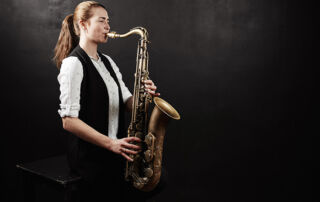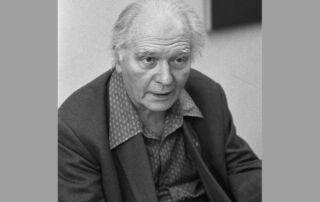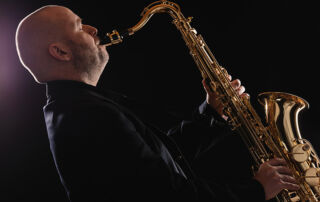Improvise? So you want to start to learn to improvise?
Improvisation is the ability to create new music on the spot on their instrument whether playing alone or with a band.
If you are not fluent or practiced in improvising, it's quite a scary thing to start improvising randomly or on a jazz standard.
How do I start to improvise?
Do I just press any keys or do I think in a key or a chord or a scale, or do I just randomly try out different notes?
What is improvisation?
I think most people know that it is not playing music from a score nor practiced, but music naturally flowing from your fingers or voice on the spot. Now the question comes:” how can I get to the point where I can sit down and “make up” or create music naturally or improvise on a jazz standard without thinking too much?
The first thing to recognise is that no one just starts to naturally flow in improv without at least sitting down in front of their instrument and trying to do it continually or without practicing it. The thing is, to do it often, even better, daily and even better start to practice it on purpose.
If you have never improvised it might feel overwhelming at first.
With the first attempts, it often does not sound great or flowing at all and you might just decide that it's not for you or that you can not do it! That is absolutely not true! As silly as it might sound, every baby started with baby steps but most people could eventually run without effort.
True improvisation is a bit more intricate than running, but you can start to improvise!
But how?
Start to listen for the few nice notes or a short phrase you could manage and build on it. Keep on repeating it and moving up an octave or down an octave with the same little phrase or notes slowly adding more. It will slowly become easier and better sounding. It's very important to not think - “this is disastrous”!
Believe that you can do it - that you can also improvise and keep on playing, trying, creating and developing.
It takes quite a while to get out of the box of thinking "notes" and the “I played the wrong note" mentality. Many classically trained students find it hard as the mind or the reading mind wants to have the security of the notes. With improv that is exactly what you do not want. You want to play without thinking of notes on a score but in a sense “play by ear” as many would call it.
Believe that you can do it - that you can also improvise and keep on playing, trying, creating and developing.
Let's talk about simple improvisation before moving on to improvisation on a chord structure and, later, on a jazz standard. Let's call this "free" improvisation.
The easiest way to start with simple improvisation is just to sit in front of your instrument and try out chords or notes flowing over you instrument - by maybe trying to simulate water or the thunder or a simple melody. Just use any notes or clusters or notes - high or low. Try to enjoy the creative jumble you make! It might not sound that great at first, but it's a start.
Rather listen to the interesting sounds that you can create on the high register or low register.
There is quite a lot of modern classical music which actually sounds totally bizarre and harmonically unsound but when it's interpreted with the dynamics or rhythms that the composer added, it becomes greatly enjoyable. I often find that one can have more freedom of emotions in these pieces than in the perfectly harmonically “correct” sounding pieces of the Baroque, Classical or Romantic era.
Now I know these have once again become composed music or written music, but most or probably all of these pieces came from sheer improvisation of the composer who did the trouble to write it down! This probably also goes for all the other periods of music!
Starting simple improvising over a chord or a chord progression
As a start you need to know the structure of your chord - that is the notes that are involved. You can start with a simple chord or chord progression.
A chord progression is when you play a few chords in a specific succession.
This chord progression can be repeated over and over. It can be any chord progression that you enjoy or get from an existing song.
How I learnt to improvise!
I personally knew nothing about improvising as a young student but after listening to a friend who on the spur of the moment just sat down and played and played not stop flowing on the piano, while I could not remember all the pages of the momentous Beethoven and Chopin (which I played months ago at my year-end concert for my last year of study at the University), I decided it had to change.
This girl was enjoying music and just playing and playing without a worry while I was stressing to remember the notes! Not that I do not absolutely enjoy the playing of the Classics, Bach or Beethoven etc! No no, it is an amazing and an immensely challenging art to play or rather interpret these great masters well.
I do stand to attention to those who play concerts of pages and pages of written music! It takes a lot of courage, an amazing lot of love, dedication, determination, work and hours and hours of practice to master these!
Good improvisation needs exactly the same ingredients for a good success recipe:
- dedication,
- determination,
- work,
- I try and try again,
- Play, play, play and play until it becomes a pleasure! An art!
In the beginning, it won't be that nice or fulfilling because it might not at all sound like John Coltrane or Einaudi but eventually you could start to sound more like them - if that's your goal. On the other hand, it's more important while copying the greats, to develop your own voice!
Develop your own sound in improvising to enjoy.
You might ask how I changed the scenario of not being able to just sit and play without a score which I could not remember? I decided to take a tune which I loved and tried to work out the few chords and melody by ear. Then I kept playing it all the time, trying to add more notes and more movement on it for about a whole year!
That was the start of my playing by ear and improvisation. Later I was introduced to jazz and improvising on jazz chords etc.
Likewise, we all learn and develop in our musical journey. It's wonderfully rewarding and sometimes really challenging but worth it!
It's a bit like opening a new beautiful, promising present at Christmas!
In the next article, I will discuss how to work on improvising on a chord progression and eventually a jazz standard.






